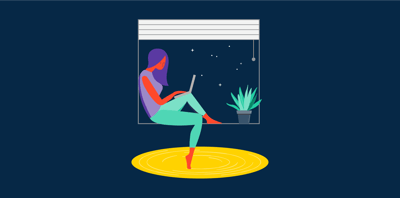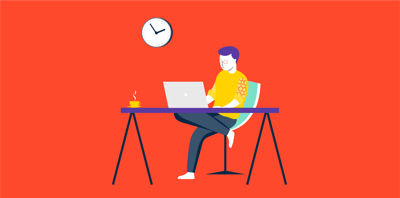June 6, 2019
 by Sophia Bernazzani / June 6, 2019
by Sophia Bernazzani / June 6, 2019
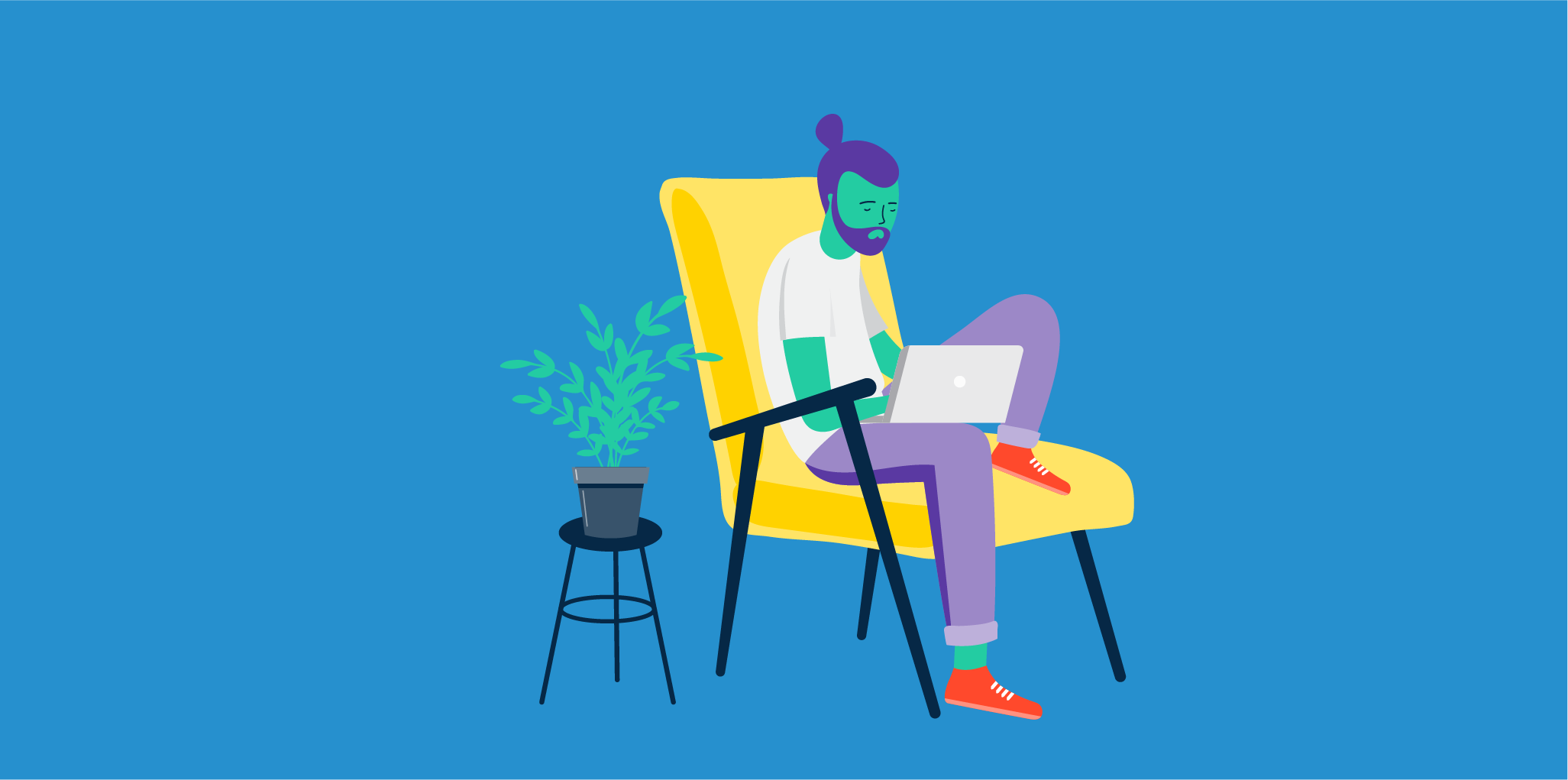
Working from home is becoming increasingly common.
Yet, when people tell their friends they’re working from home, they’re usually met with skepticism and flippant accusations like, "Oh, you're just watching Netflix, aren't you?"
It's easy to assume working from home leads to less productivity, but in reality, it's usually quite the opposite. Keeping remote employees engaged and on track isn’t impossible. In fact, it can help boost productivity. As 52% of employees work from home at least once per week, remote work is beneficial for a reboot and recharge while maintaining a strong work ethic away from the office.
The number one reason people choose to work remotely is for increased productivity and better focus.
But we're still human. We get distracted by full dishwashers, the temptation to watch the last GoT episode, or countless other potential interruptions we face when we're home for the workday.
To help you with time management and remain optimally productive, we've compiled this list of 9 ways to stay focused when you're working from home.
Working from home isn't an excuse to stay tucked under your covers well past noon. To ensure you remain productive when you're remote, find a space in your home to dedicate to work – and only work.
If you don't have a full office space at home, try clearing off a desk in your living room or creating an office environment by moving a notepad and lamp to your kitchen table. Alternatively, if you don't feel productive in your home, check out nearby coffee shops or coworking spaces.
Ultimately, it's important you have a space that signals to your brain that it's time to focus. Plus, it's equally critical you save spaces like your bedroom for relaxation, so you can continue to have good work-life balance. Otherwise, you might find yourself checking your email from your bed at 9 p.m. because you haven't mentally left the office.
It's difficult to feel productive when you're still in your pajamas at 10:30 a.m. and haven't showered or eaten breakfast yet. Without a constructive morning routine, you'll end up feeling like it's a Saturday morning, not a work morning.
To ensure productivity, a time management tip is to kick off your day with the same routine you'd use if you were heading to the office. Make some coffee, take a shower, and put on a pair of jeans rather than staying in your bathrobe and slippers. Maintaining a morning routine helps you to mentally prepare for the day and get in a productive state-of-mind.

When you're working from home, there are often other demands you need to pay attention to: cooking, taking your dog for a walk, picking a child up from daycare, or switching laundry from the washer to the dryer, to name a few. To maintain focus throughout the day, it's crucial to set a schedule and stick to it.
For instance, if you're most productive first thing in the morning, try tackling your most difficult tasks right when you wake up. Later in the day you can complete easier tasks, like responding to emails or editing a blog post while you multitask on some of those other non-office-related responsibilities.
Additionally, if you work both in the office and remotely, choose which tasks you're going to accomplish better at home and which you should save for the office. For instance, you might decide Monday and Tuesday are your in-office days and plan all your meetings for those days. Then, on Wednesday, your schedule can revolve around solitary work you know you can get done better at home.
Even if you're not a morning person, you should really make a point of getting yourself together before too much time has passed.
One of the most obvious differences between working from home and conducting your job at an office is the commute. However much flexible work is becoming more and more a part of our daily lives, the commute provides a bookend to the day and, in that sense, continues to define what a workday actually is.
Of course, eliminating the actual act of sitting on public transportation or being stuck in traffic is a net benefit to anyone's day. Despite this, getting yourself into your to-do list as early as possible can do wonders for affording flexibility to the rest of your day.
Without the social or managerial pressure to remain focused, it can be tempting to mindlessly peruse Instagram or quickly shop online when you're home alone. To ensure productivity, you must employ tactics to eliminate unnecessary distractions.
For starters, try keeping your phone in another room while you're working. If you feel compelled to check social media or respond to texts, schedule it into one of your daily breaks and use it as motivation by telling yourself, "If I finish this blog post, I can check Instagram for 20 minutes."
Alternatively, you might try a tool like Freedom or Dayboard's New Tab & Site Blocker, which can temporarily block distracting websites like Facebook or Amazon while you work.
If you think casually checking email or quickly opening Facebook isn't a big deal, consider this: research from the University of California, Irvine found that the typical office worker spends only 11 minutes on a task before getting interrupted, but once interrupted, it takes them about 23 minutes to get back on track. To ensure long-term productivity, implement strategies to ensure you don't get interrupted in the first place.
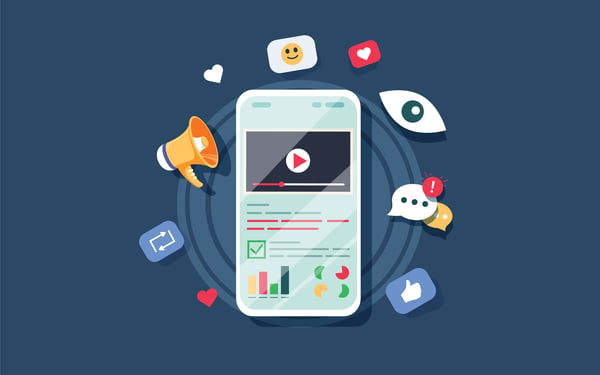
Surprisingly, we can often become so hyper-focused at home that we forget to take breaks, which can burn you out quickly. To ensure you find sustained focus throughout the day, it's critical you incorporate breaks into your schedule. Leave your apartment for a cup of coffee, go for a lunchtime cycle class, or grab lunch down the street.
To ensure you're consistently making wise professional decisions, take breaks to mentally refresh. While it might seem counterintuitive, regular breaks can actually make you more productive, particularly if your breaks include a form of exercise.
Additionally, breaks can help prevent decision fatigue. A study found Israeli judges were more likely to grant parole to prisoners after their two daily breaks. As decision fatigue sets in, however, the rate of granting parole dropped to nearly zero percent because judges resorted to the easiest option – just saying no.
The delineation between "work" and "home" is one of the first things to go when you become a remote worker.
If you're new to the work from home crew, you probably haven't spent much time thinking about how important this distinction is for your productivity and sanity. Blending the spaces where you work and relax can make it nigh impossible to hit the same levels of achievement you were able to get at the office, which is why it's important to set aside a room or a period of time where you work instead of engaging with the other elements of your "home" life.
Unfortunately, other people can become the biggest obstacles to achieving a solid work/home balance in your new remote setup. Setting boundaries with the other people you live with, particularly if they're your romantic partner, is critical for making sure you can have the necessary space and time you need to actually focus on the work you're supposed to be doing.
As mentioned above, breaks are critical. But if you're running to a lunchtime SoulCycle class, it's still important to communicate that to your manager or teammates. Since you're not in the office, your coworkers can't check your desk to see if you're available or not.
Additionally, you'll be more productive if you set clear online and offline boundaries. If you need to take your dog for a walk, set an "Away" status on your Slack. At 5 p.m. (or whenever you choose to be done working for the day), don't respond to any more emails, so coworkers know you're unreachable until tomorrow. If possible, incorporate those times into your Gmail calendar so when you're offline, your coworkers will know why.
Ultimately, a good work-life balance is the only way you can stay productive (and sane) when working from home.
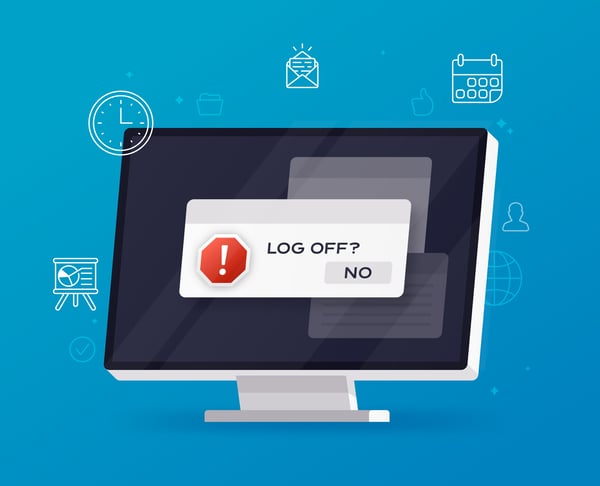
Checking off a to-do list is one of the simplest pleasures of a work day. When working from home, it's necessary to have specific goals you need to meet to ensure you stay on track when Netflix or your bed is calling your name.
Additionally, if it helps, try making yourself accountable by promising coworkers or your manager that you'll finish certain tasks by end-of-day. Then, break down the project into smaller intervals. For instance, if you're aiming to finish a presentation for tomorrow's meeting, give yourself the morning to collect data, take a break for lunch, and then urge yourself to finish the rough draft of the presentation by 2 p.m. Go for a walk, and then come back and look it over.
It can be tricky to feel done for the day when you're working from home, and you might find yourself still responding to emails or editing your video far past normal work hours. But whether you're remote or in-office, work-life balance is still critical for long-term professional success.
To ensure proper balance, try setting up a logoff routine at a reasonable end time each day, regardless of how much you've finished. Jot down a to-do list of tasks you want to tackle the next day, set an away status on your messaging apps, and put your work supplies back away until the morning.
Studies have found friendships in the workplace result in more productive teams. If you have close relationships with coworkers, you're more likely to collaborate with them and ask them for advice without fearing criticism, which can help you do a better job.
Additionally, relationships in the workplace allow you to form a fuller picture on how your role plays into the company's larger goals, boosting your motivation and morale.
However, working from home could hinder your ability to catch up with coworkers and form those deeper bonds like you would if you ran into them in the office kitchen. To combat this, it's vital to maintain connections with them through internal communication tools like Slack or video conferencing software tools like Zoom. Set up regular 1:1 virtual meetings simply for the purpose of catching up so you're never out of the loop. And unfortunately, we can't avoid virtual presentations completely. Be sure to leverage screen sharing tools so other remote employees feel like they're in the room with you.
Even though you might have the luxury of sitting on your sofa while working from home, it doesn't mean you're not working. The work you do from home can be as productive – if not more productive than your time in the office. Don't second guess yourself!
Want to learn more about optimizing your work from home strategy? Check out these work from home tools to help you be your most productive self!
Sophia Bernazzani is the Content Marketing Manager at Owl Labs, creator of the Meeting Owl, a 360° smart video conferencing camera. She lives and works in Boston, Massachusetts, and when she's not writing about leadership and remote work, you can find her doing yoga or taking pictures of her cat.
Pick a job you love, they said. You’ll never work a day in your life, they said.
 by Maddie Rehayem
by Maddie Rehayem
Constant racing. Fighting for the best performance. Trying to find the best tactics but...
 by Kinga Odziemek
by Kinga Odziemek
A good home office is fine, but a truly great home office can change the way you approach...
 by Alexa Drake
by Alexa Drake
Pick a job you love, they said. You’ll never work a day in your life, they said.
 by Maddie Rehayem
by Maddie Rehayem
Constant racing. Fighting for the best performance. Trying to find the best tactics but...
 by Kinga Odziemek
by Kinga Odziemek
